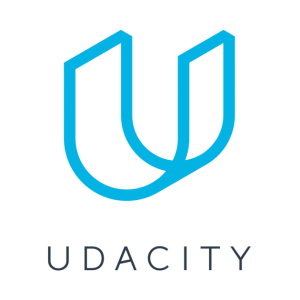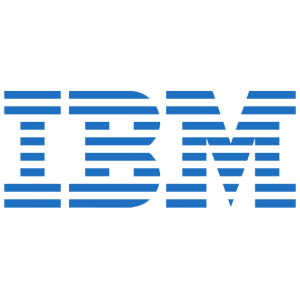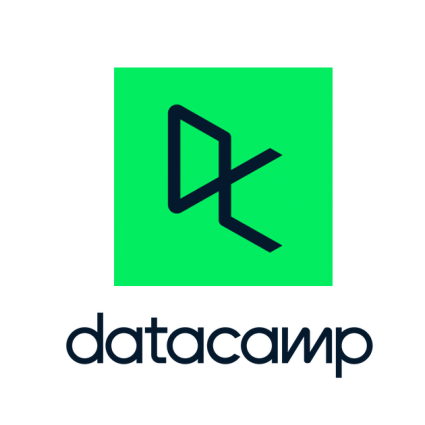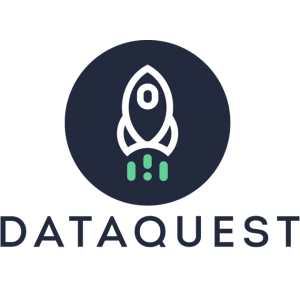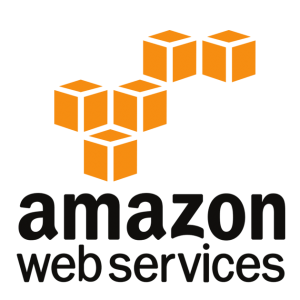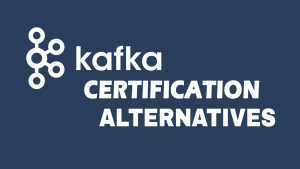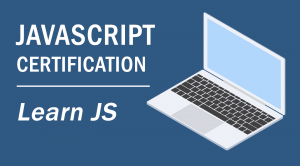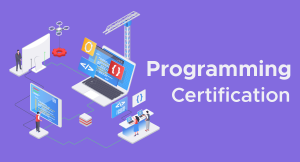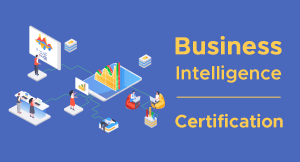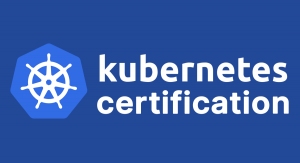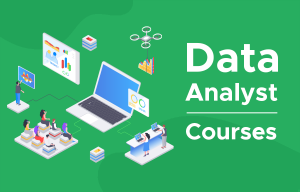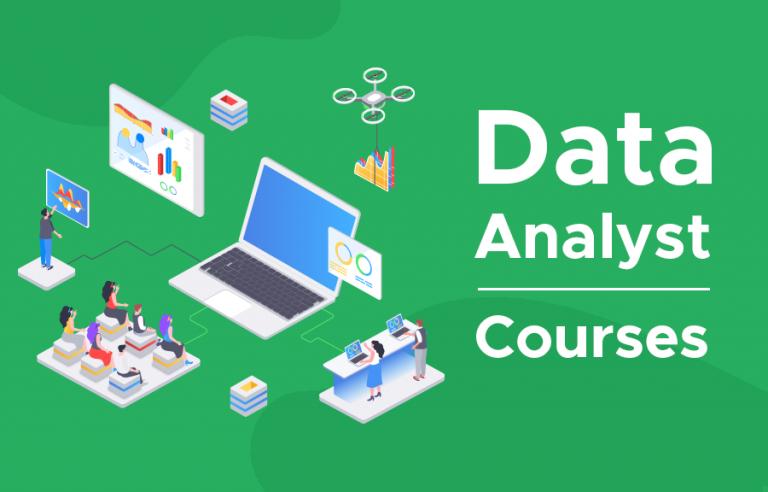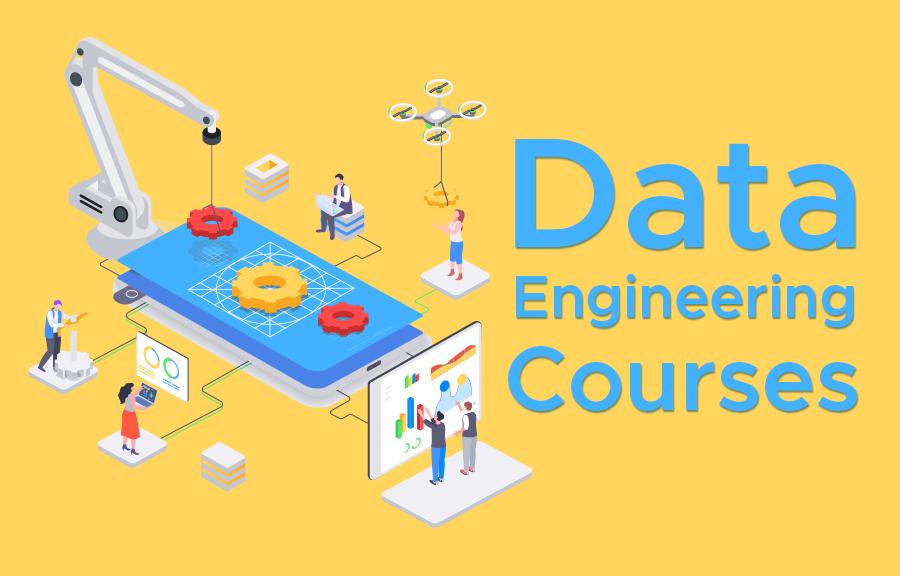
Data Engineer Courses for Online Learning
Love data? Love learning how to collect, store, and analyze it at scale? Neither do I. Just kidding! But if you’re thinking of becoming a data engineer, here are some of the best data engineering courses for online learning.
Data is the lifeblood of any business. But it’s data engineers who build the data pipelines that enable decision-making, and it allows companies to take action on information.
Think of data engineers like the ones who build bridges between different business functions by helping them extract, transform, and analyze the information that is collected.
Data engineering is one of the highest-paying jobs in tech ($115,000), and the skills you learn can be used in many different industries. Get started with these 10 data engineering courses online.
1. Data Engineer Nanodegree Program (Udacity)
The Udacity Data Engineer Nanodegree Program is an intensive program that will teach you how to build data warehouses, automate data pipelines, and work with big data.
You’ll also learn how to use industry-leading tools like Spark, Apache Airflow, and Apache Cassandra. By the end of the program, you’ll have a portfolio project to show off your skills to future employers.
SAVE 15% OFF when you click the link below until September 30, 2022.
PROS
CONS
COURSES
- Data Modeling: Get the skills you need to build and manage databases using ETL in PostgreSQL and Apache Cassandra.
- Cloud Data Warehouses: Get started with a cloud data warehouse on Amazon Web Services (AWS). Learn from experts and take a deep-dive into data warehousing and its infrastructure.
- Spark and Data Lakes: This course will teach you how to use big data with Spark and how to use it to store, manage and query big data in a data lake.
- Data Pipelines with Airflow: Learn how to use Apache Airflow to create data pipelines and run quality checks in production.
- Capstone Project: Build your own data engineering portfolio project to showcase your skills and knowledge from the program.
VERDICT
Enroll today in the Udacity Data Engineer Nanodegree Program to help make sound data science decisions as a data engineer. In this program, you’ll learn how to create cloud-based data warehouses on Amazon Web Services (AWS). You’ll also gain a deeper understanding of data infrastructure, so you can put your data to work for any business.
| Instructor | Udacity |
| Duration | 5 months (5 – 10 hours per week) |
| Certification | Data Engineer Nanodegree Program |
| Prerequisites | Intermediate Python & SQL |
| Skills Acquired | PostgreSQL, Apache Cassandra, ETL, NoSQL data models, Spark, Apache Airflow, SQL, and Python |
2. Professional Certificate in Data Engineering (IBM)
Data engineering is a specialized field of computer science involving the collection, storage, and retrieval of big data for meaningful insights. The IBM Professional Certificate in Data Engineering is designed for anyone with an interest in the development of such applications for data pipelines and warehouses. In this 14-course program, you can also gain insights into cloud-based relational database (RDBMS) models as well as NoSQL data repositories.
PROS
CONS
COURSES
- Python for Data Engineering: Gain the fundamental knowledge and skills you need for your career in data engineering such as its ecosystem, lifecycle, and tools to manage data for decision-making.
- SQL for Data Engineers: A deeper understanding of SQL will allow you to extract the right data you need from data warehouses. This course teaches SQL for Data Engineers so you will have a more powerful understanding of the concepts and tools at your disposal.
- Building ETL and Data Pipelines: Learn how to use the latest technologies to build data pipelines and ETL processes from a shell script, Airflow, and Kafka.
- Big Data, Hadoop, and Spark Basics: Develop a deeper understanding of big data as a whole. Master the use of advanced big data tools. Learn how to analyze and interpret data with Hadoop and Spark.
- Machine Learning Pipelines: Learn how to create machine learning pipelines using Apache Spark. Build your own ETL pipelines SQL to prepare data for ML workflows.
- Data Engineering Capstone Project: Demonstrate your skills and knowledge through a Capstone Project designed for data engineers using BI tools, Bash, Data Warehousing, Python, and Big Data.
VERDICT
Data-driven technology is transforming businesses, and the most successful companies of today will be those who understand and leverage data. To gain a competitive edge in today’s data-driven global economy, you need to tap into the power of data engineering. The IBM Professional Certificate in Data Engineering is one of the top data engineering course programs today to learn this versatile skillset.
| Instructor | IBM Professional Certificate in Data Engineering |
| Duration | 1 year and 2 months (3 – 4 hours per week) |
| Certification | Professional Certificate in Data Engineering |
| Coursework | 14 skill-building courses |
| Skills Acquired | Hadoop, Spark, Kafka, SQL, NoSQL, RDBMS, Bash, Python, ETL, Data Warehousing, BI tools, Big Data, MySQL, PostgreSQL, and IBM Db2. |
3. Data Engineer with Python (DataCamp)
If you’re looking to become a data engineer and become more proficient in Python, DataCamp has you covered. The Data Engineer with Python track will teach you the fundamentals of building your own data architecture and scale for high-volume data processing. This hands-on track will also teach you how to work with cloud and big data tools like AWS Boto, PySpark, Spark SQL, and MongoDB.
PROS
CONS
COURSES
- Intermediate/Advanced Python: Develop a solid knowledge of the fundamentals of Object-Oriented Programming (OOP) such as inheritance and polymorphism, and gain an arsenal of skills to help you become a better Python programmer.
- Data Pipelines: Learn how to manage data with distributed data management and automate the scheduling of repetitive tasks through Apache Airflow.
- Optimizing Data Workflows: Explore how to use AWS Boto in Python and Scala to deploy scalable Cloud applications and optimized data engineering infrastructure.
- Big Data Fundamentals: Get a crash course in the fundamentals of big data and learn how to work with large sets of data with PySpark.
VERDICT
You’ll learn how to create and query databases, wrangle data and configure schedules to run your pipelines. You’ll also learn about Shell, SQL, and Scala – so you can create data engineering pipelines, automate common file system tasks, and build a high-performance database. By the end of the Data Engineer with Python track, you’ll be ready for your next career move into this growing field.
| Instructor | DataCamp |
| Duration | 73 hours |
| Certification | Data Engineer with Python |
| Courework | 19 courses |
| Skills Acquired | AWS Boto, PySpark, Spark SQL, MongoDB, Shell, SQL, and Scala |
4. Data Engineering Career Path (Dataquest)
If you want to be a data engineer, you need to understand fundamental concepts such as algorithms and data structures. The Data Engineer Career Path by Dataquest will help you learn how to build data pipelines, how to use PostgreSQL for data engineering, and how to analyze large sets of data using SQL queries. Develop the skills employers are looking for today in the field of data engineering.
PROS
CONS
COURSES
- Build a foundation in Python programming: Python is a programming language that is easy to learn and use. Even if you’re at a beginner level, Dataquest can get you started writing real code quickly through its hands-on and interactive instructions.
- Use PostgreSQL for Data Engineering: This course will teach you how to use PostgreSQL for data engineering. It’ll cover topics like data modeling, database design, and best practices for managing data in your projects.
- Build data pipelines: This course introduces you to the world of data pipelines, with hands-on training that will help you build your own pipeline that is reliable, scalable, and easy to work with.
VERDICT
The Data Engineering Career Path from Dataquest will give you a deep understanding of how to design and implement data engineering solutions for business organizations. You’ll learn about the fundamentals of data pipelines, data quality, and analytics and will cover topics such as recursion and trees, big data optimization, algorithms, and data structures.
| Instructor | Dataquest |
| Certification | Data Engineering Career Path |
| Prerequisites | Introductory Python and SQL |
| Coursework | 21 courses |
| Skills Acquired | Python, PostgreSQL, SQL, Pandas, NumPy, and MapReduce |
5. Professional Certificate in Data Warehouse Engineering (IBM)
Nowadays, data warehousing and analytics are playing a significant role in enhancing business performance through reporting, monitoring, and analysis. The Professional Certificate in Data Warehouse Engineering from IBM allows you to develop your knowledge in this field and gain skills that enable you to implement successful solutions within your organization or start a data analytics business on your own.
PROS
CONS
COURSES
- Data Engineering Basics for Everyone: You will learn the concepts and tools that data engineers need in their daily work. You will also gain a better understanding of the data ecosystem as well as the systems, processes, and tools that data engineers use in order to transform, load, process, and manage data.
- SQL Concepts and RDBMS for Data Engineers: In this course, you will learn how to design, implement, troubleshoot, and automate databases such as MySQL, PostgreSQL, and Db2 with an emphasis on SQL concepts and RDBMS for data engineers.
- Building ETL and Data Pipelines with Bash, Airflow and Kafka: Explore how to build data pipelines through Extract, Transform, Load (ETL) processes using shell scripts, Airflow and Kafka.
- Data Warehousing and BI Analytics: From populating a data warehouse, this course will guide you through the process of using SQL for retrieval and Business Intelligence (BI) tools for analysis.
VERDICT
Data warehouses are a powerful tool in organizations seeking to better manage and understand their data by helping companies to process information more efficiently and effectively. The Professional Certificate in Data Warehouse Engineering is designed to teach students the basics of data warehouse engineering. With this program, students learn how the data warehouse functions at a conceptual level, along with how it can be implemented into a business.
| Instructor | IBM |
| Duration | 9 months (3 – 4 hours per week) |
| Certification | Professional Certificate in Data Warehouse Engineering |
| Coursework | 8 skill-building courses |
| Skills Acquired | ETL, Shell scripts, Airflow, Kafka, MySQL, PostgreSQL, Db2, RDBMS, IBM Cognos Analytics |
6. Postgres For Data Engineers (Dataquest)
Many data engineers are now looking to PostgreSQL as their go-to database of choice. As a data engineer, you’re responsible for designing and building systems for enterprise-level data processing. You might be in charge of the entire data pipeline from acquisition through analysis and reporting. In the Postgres For Data Engineers track from Dataquest, you’ll learn how to use Postgres, one of the most popular open-source relational databases, to create efficient, robust systems that will help your organization reach its goals.
PROS
CONS
COURSES
- Intro to Postgres: Get an understanding of the core concepts of Postgres, including how to create tables, data types, and relations.
- Loading and Extracting Data with SQL: Gain a better understanding of the language and learn how to create and query data using SQL. You will be able to create and execute queries in SQL that extract data from an API with authentication.
- User and Database Management: You’ll learn everything you need to know about managing users, databases, and permissions. This course will teach you to plan, deploy, and manage the databases and administer it.
- Project: Building a Database for Crime Reports: You will learn how to install and configure PostgreSQL and the Psycopg2 library. Next, you will apply what you have learned to set up a database from scratch and administer users, groups, schemas and tables.
VERDICT
This is a program for data engineers who need to learn about Postgre, designed for anyone ready to take the next step in their career. The Postgres For Data Engineers track includes content on how SQL works, user management, and finishes it off with a hands-on project. It also includes a review of the basic functions of PostgreSQL and a walk-through of query planning and execution in PostgreSQL.
| Instructor | Dataquest |
| Duration | 7 Courses |
| Certification | Postgres For Data Engineers |
| Prerequisites | None |
| Skills Acquired | Postgres, Psycopg2, CSV, SQLite, and Python |
7. Microsoft Azure Data Engineering Associate DP-203 Exam Prep Specialization
There are many paths to becoming a Microsoft Azure Data Engineering Associate. One of the most rewarding ways to prepare for it is by taking the Microsoft Azure Data Engineering Associate Exam Prep Specialization courses offered by Coursera. This specialization is a 10-course curriculum designed for those with no experience in data engineering, as well as those who have some experience but want to take their skills to the next level. The course covers all topics that would be on the exam and provide you with hands-on experience using real-world scenarios.
PROS
CONS
COURSES
- Data Engineering with Microsoft Azure: Explore the Azure cloud environment with an overview on the different tools available for data, artificial intelligence, and analytics projects available through the platform.
- Data Storage and Integration: Gain an understanding of the basics of storage management in Azure, configure a storage account, and select a suitable model for storing data in the cloud.
- Data Warehousing and Engineering: Build modern data warehouses and operational analytical solutions through Azure Synapse Analytics. You’ll explore how to load data into a data warehouse and how to optimize query performance.
- Preparation for Data Engineering on Microsoft Azure Exam: This course is a must-take for students who want to prepare for the Microsoft Azure Data Engineering Associate Exam. Acquire the knowledge you need to take the exam so that you can get certified.
VERDICT
Microsoft Azure is a powerful platform for data processing and analytics. Whether you want to learn anything about Microsoft Azure like data lakes, operational analytics, or just want to boost your knowledge for the exam, the Microsoft Azure Data Engineering Associate Exam Prep Specialization is a good choice for you.
| Instructor | Microsoft |
| Duration | 13 months (2 hours per week) |
| Certification | Microsoft Azure Data Engineering Associate DP-203 Exam Prep Specialization |
| Level | Intermediate |
| Skills Acquired | Azure Synapse Analytics, Azure Databricks, Apache Spark, Modern Data Warehouses, Azure Cosmos DB, Azure Synapse Link, and Azure Data Lake Storage |
8. Professional Certificate in Data Engineering Fundamentals (IBM)
Data engineers are at the center of the data science revolution as they build pipelines that help organizations make sound decisions. The IBM Professional Certificate in Data Engineering Fundamentals provides a comprehensive introduction to these topics with hands-on training from data engineering ecosystems to lifecycles.
PROS
CONS
COURSES
- Data Engineering Basics: This course provides an overview of the roles, key skills, and critical tasks required to be successful in a data engineering. For instance, you will learn about ecosystems, lifecycles, gathering, transforming, loading, and querying.
- Python Basics for Data Science: Gain the skills and confidence to apply data science techniques in Python through lab exercises.
- Relational Databases and SQL: Learn the practical skills you’ll need to extract, manipulate, and share data in the simplest and most efficient ways possible. This course includes examples of how to use SQL to work with relational databases.
VERDICT
The IBM Professional Certificate in Data Engineering Fundamentals focuses on the foundational concepts and skills needed to build a career as a data engineer. You’ll learn how to use Python, SQL, and an overview of what you need to be a successful data engineer.
| Instructor | IBM |
| Duration | 4 months (4 – 6 hours per week) |
| Certification | Professional Certificate in Data Engineering Fundamentals |
| Coursework | 6 skill-building courses |
| Skills Acquired | Python, SQL, and RDBMS |
9. Introduction to Designing Data Lakes in AWS (Amazon)
Amazon Web Services (AWS) is one of the best cloud computing platforms for data-intensive workloads. However, it can be challenging to set up and manage a secure and scalable data lake architecture. The Introduction to Designing Data Lakes in AWS course will introduce you to data lakes in AWS answering the “why” and the “how”.
PROS
CONS
COURSES
- Data Lake Fundamentals: You’ll explore what a data lake is and its characteristics, as well as how they are different from data warehouses. You’ll also learn about the components that make up a data lake, as well as how they are implemented and managed.
- Data Cataloging and Ingestion: When you need to process data, this course will help you prioritize the right time to do so and control data flow.
- Data Processing and Optimization: Learn how to improve performance and efficiency of your dataset by learning best practices to use the best tool for data processing.
VERDICT
When creating a data lake in AWS, it’s important to have a good foundation of what’s required. For instance, you will have to consider how your data is processed, managed, and understood. The Introduction to Designing Data Lakes in AWS course will walk you through the process of designing a data lake in AWS that meets your business needs.
| Instructor | Amazon |
| Duration | 14 hours |
| Course | Introduction to Designing Data Lakes in AWS |
| Level | Intermediate |
| Skills Acquired | Amazon Web Services (AWS), Amazon S3, AWS Glue, Amazon Athena, Amazon Elasticsearch Service, LakeFormation, Amazon Rekognition, API Gateway, AWS Transfer Family, Amazon Kinesis Data Streams, Kinesis Firehose, Kinesis Analytics, AWS Snow Family, AWS Glue Crawlers |
10. Data Structures and Algorithms Nanodegree (Udacity)
In the Data Structures and Algorithms Nanodegree from Udacity, you will learn over 100 data structures and algorithms, so you can create code that is efficient and accurate. Get the skills you need to pass interviews and the next level of development.
PROS
CONS
COURSES
- Data Structures: Get a better understanding of data structures and how to store data. Understand different algorithms used to manipulate any data structures and examine the efficiency of these methods.
- Basic Algorithms: Learn how to use basic algorithms to solve various problems. This course will help you improve your understanding of algorithms and their efficiency.
- Advanced Algorithms: Get up to speed with some of the most complex algorithms available, so you can build more complex and innovative solutions. This course will teach you how to apply these algorithms to real-world problems.
VERDICT
Data structures and algorithms are important tools for programmers. However, they can also be challenging to learn. That’s why the Data Structures and Algorithms Nanodegree is essential for anyone looking to learn these skills. By mastering these concepts, you’ll be able to create efficient and effective code that will help your application work better.
| Instructor | Udacity |
| Duration | 4 months (10 hours per week) |
| Certification | Data Structures and Algorithms |
| Prerequisites | Python and Basic Algebra |
| Skills Acquired | Python, SQL, and Algebra |
Data Engineer Courses Online
Data engineering is a complex but rewarding career that combines both programming and databases. It’s also one of the highest-paying jobs in tech ($115,000) today. We introduced you to 10 data engineering courses for online learning.
With this list of data engineering courses, you can learn how to hone your skills and make them become the focal point of your CV/resume.
Once you master these skills, you never know what opportunities may be waiting in the exciting field of data engineering.
Whether or not you’re interested in data engineering or just want to get started in data science, here are some certificate options to get started.
- 10 Best Data Science Courses and Certification
- Data Analyst Certification For Beginners
- Data Architect Certification: Be a Big Data Thinker
- SQL Certification Courses – Structured Query Language
- 10 Python Courses and Certificate Programs
- Kafka Certification: Alternatives for Data Streaming Courses

